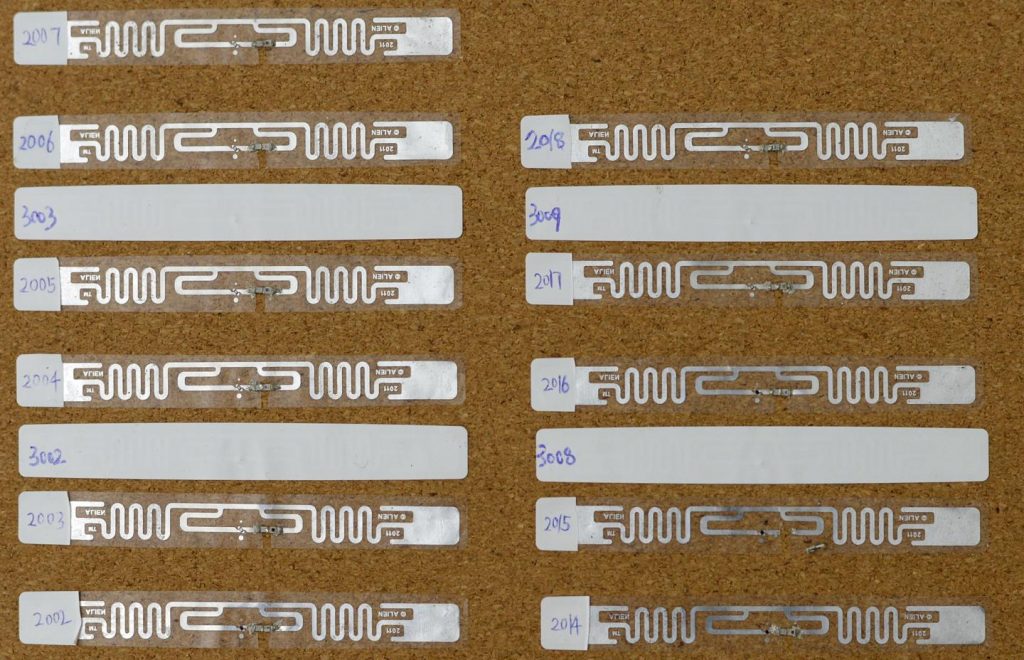
An RFID tag is modified by cutting out a small part its antenna and placing a small light-sensing phototransistor or temperature-responsive resistor (thermistor) on it.
Ontario, Nov. 9, 2018: Researchers at the University of Waterloo, Canada have done a simple hack and found a way to convert a radio frequency identification (RFID) tag into a smart battery free device.
RFID is the metal ribbon of metal with a tiny chip found in various objects, and give the devices the ability to sense the environment.
According to a public post, Professor Omid Abari, Postdoctoral Fellow Ju Wang and Professor Srinivasan Keshav from Waterloo’s Cheriton School of Computer Science have found a way to give devices the ability to “sense the environment.”
“It’s really easy to do,” Wang was quoted in the post. “First, you remove the plastic cover from the RFID tag, then cut out a small section of the tag’s antenna with scissors, then attach a sensor across the cut bits of the antenna to complete the circuit.”
As they are, RFID tags provide only identification and location. The research team, as part of its experiment, cut the tag’s antenna and placed a sensing device on it. To give a tag eyes, the researchers hacked an RFID tag with a phototransistor, a tiny sensor that responds to different levels of light. And voila, an RFID tag could now sense, and “see” the environment it was in. Another addition, the team added a switch to the tag so it could act as a keypad that responded to touch.
By exposing the phototransistor to light, it changed the characteristics of the RFID’s antenna, which in turn caused a change in the signal going to the reader, said the post. They then developed an algorithm on the reader side that monitored change in the tag’s signal, which is how it senses light levels. Such smart battery free devices are getting to be more and more important for the prevalence of Internet of Things (IoT) tech.
The research paper by Wang, Abari and Keshav titled, ‘Challenge: RFID Hacking for Fun and Profit-ACM MobiCom’, appeared at the 24th annual international conference on Mobile Computing and Networking held in October this year in New Delhi, India.
Image Credit: University of Waterloo
